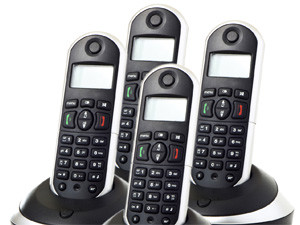
The Independent Communications Authority of SA (ICASA) has unveiled a campaign it tags a "nationwide crackdown" on illegal handsets that have been wreaking havoc on Vodacom's mobile network.
ICASA says while it has the power to search property and confiscate illegal cordless phones, it urges the public to take action themselves and hand in illegal equipment to its offices, which can be found in all provinces.
This follows attempts by Vodacom to elicit support from ICASA to eliminate illegally imported digital enhanced cordless telecommunications (DECT) phones, which operate in Vodacom's 3G frequency band and interfere with the operator's network, particularly in the Western Cape.
Cape campaign
In a media statement this week, ICASA said consumers who purchase handsets - in particular DECT phones - from flea markets and other retailers may have bought illegal handsets. "Interference by illegal handsets affects 100 000 to 200 000 subscribers daily, either through slow or poor Internet browsing and e-mail traffic."
ICASA's nationwide public awareness campaign will begin in the Cape Peninsula area, due to the "unprecedented and alarming number of incidents that have severely impacted the networks and rights of operators and subscribers" in the area.
The regulator says, for the past two years, ICASA attended to more than 30 cases of frequency spectrum interference in the Sea Point area, with interference spreading later to the entire Cape Peninsular area.
Committing crime
In terms of the reasons for network interference from the illegal phones, ICASA explains that, while they may be similar to models available locally, they are configured for the networks of countries for which they were manufactured (specifically optimised for the frequency allocations of those network operators).
The authority says it is a criminal offence to use non-type-approved handsets on local networks. "All handsets brought into SA must be type-approved by ICASA."
ICASA says cordless phone culprits violate the licence rights of operators and subscribers. "A non-type-approved handset has the potential to cause interference at two levels - firstly, it negatively impacts your call quality, and secondly, it interferes with mobile towers and subscribers' service.
"The result of interference is poor quality of service and the non-availability of access to the network and increased dropped calls and slower data rates."
ICASA urges the public to urgently hand in illegal handsets to its offices, details of which can be found on the government information site.
An illegal phone can be identified by its lack of ICASA branding.
Share